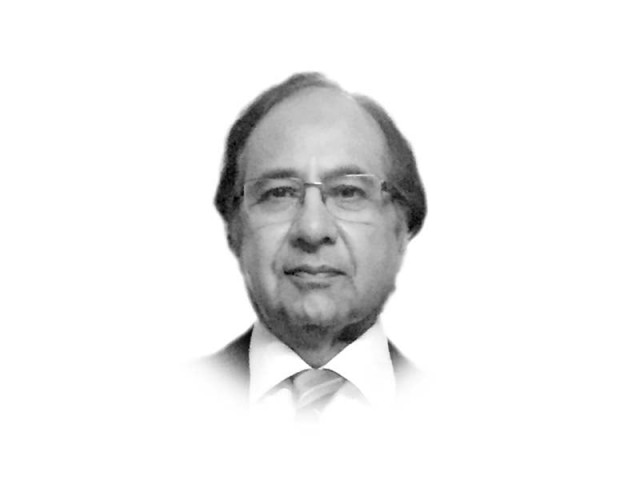Efficacy of the IMCTC
The term ‘terrorism’ needs a curt definition since it means different things for different participating nations

The writer is the recipient of four national APNS awards and four international best journalistic awards and can be reached at Ihtasham.haque@gmail.com
Grand as it may sound, the coalition seems far from achieving meaningful gains against mayhem and terrorism currently prevalent in many Muslim nations, due to reasons highlighted in the succeeding discourse. The body claims to be a non-partisan, non-sectarian, inclusive, pan-Islamic unified front of willing Muslim countries committed to ‘wipe terrorism from the face of earth’. In reality, it is everything but inclusive and has miles to go before it can claim to be remotely effective in real terms. Here is why.
Firstly, the term ‘terrorism’ needs a curt definition since it means different things for different participating nations. This varied understanding of the term would translate into the absence of consensus, even a broad one, amongst the countries in this coalition on the ‘threat’ that is to be encountered. Without concrete identification of threat, a plausible course of action that would satisfy all stakeholders cannot be charted. Contradictory understanding of ‘threat’ would also result in noncommittal and hesitant participation by many countries, some of which might not have as much faith in the ‘cause’ as others.
Secondly, the scope of the alliance needs an elaborate and credible description. While the statements made on the first meeting of the coalition in Riyadh emphasise that it is not against any country or sect, the same is not manifest in reality where Shia-dominated Iraq, Iran and Syria are not on the list of member nations. The absence of these countries has a palpable effect on the credibility of the coalition’s cause and must be addressed as soon as possible. The scope must also shed light on the use of kinetic forces in the coalition. General Raheel Sharif insisted that the dominant role of the countries would be in the fields of intelligence sharing and capacity-building. These basic coordination measures, however, hardly merit formal forging of an alliance and the need to have a battle hardened four-star ‘Commander-in-Chief’. Would this coalition be the Islamic equivalent of Nato? Are there any defensive pacts in the offing that would ensure the territorial integrity of member nations against foreign aggression? Is there any peace-keeping mandate for the alliance? All of these questions hitherto remain unanswered and would have implications on the survival and effectiveness of the coalition.

Thirdly, the staggering scale of the combined might of member nations has myriad implications. Collectively, the alliance has access to the largest army in the world, the largest air force, the largest navy, a nuclear arsenal, a considerably advanced military industrial complex, state-of-the-art military hardware, credible long range missile capability, geographic contiguity amongst member nations, control or influence over the major naval straits in the world and enormous oil resources. Does this incredible capacity unnerve the West in the backdrop of Samuel Huntington’s ‘Clash of Civilisations’ prophecy? It surely does not. On the contrary, major policy influencing think tanks in the West have overwhelmingly supported the alliance. Donald Trump’s recent visit to Riyadh confirmed his unflinching commitment to the cause as well. For the West, this seems like a great opportunity to kill two birds with one stone. An ‘Islamic’ alliance with Saudi Arabia in the driving seat harbouring strong negative emotions against other Islamic countries, especially Iran might actually be the start of a new phase of hostilities in the region and beyond.
Fourthly, there is no visible political ownership of the initiative. While Riyadh might boast of being in charge, powerful military nations like Pakistan, Turkey and Indonesia would enjoy an automatic veto on all issues of mutual interest. The ‘Commander-in-Chief’ of the coalition is from Pakistan who would be reluctant to form part of any operation that might have sectarian underpinnings keeping in view Pakistan’s national stance on the issue. General Qamar Bajwa’s recent visit to Iran assured the leadership that Pakistan would not be part of any venture against the country and in turn got a rare show of Iranian support for the Kashmir cause. Fact remains that Pakistan can ill-afford to have another enemy on its already simmering borders. With an aggressive Saudi Prince and apparent heir to the throne at the helm of affairs, such dynamics have the potential to create an ideological rift between member nations sooner than later.
Lastly, the coalition being the brainchild of the Saudi heir apparent, Mohammad bin Salman, is likely to have a parochial worldview and may be driven for selfish reasons rather than the noble idea of fight against terrorism that the alliance boasts of as its cardinal ideology. Divergent interests and egotistical motives might be the Achilles’ heel for a coalition that otherwise harbours great potential to achieve lofty objectives for Muslim nations.
Published in The Express Tribune, December 5th, 2017.
Like Opinion & Editorial on Facebook, follow @ETOpEd on Twitter to receive all updates on all our daily pieces.













COMMENTS
Comments are moderated and generally will be posted if they are on-topic and not abusive.
For more information, please see our Comments FAQ